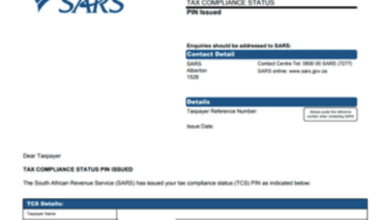All The Basics You Need To Know About Child Maintenance In SA

Maintenance is the obligation to provide for another person. In this case, a child with food, clothing, housing, medical care, and education or a way to help the person get these basic needs. The legal term for this maintenance is ‘legal support’ or ‘the duty to maintain.’ Legal support has three bases: the ability to support, the relationship between the people involved, and the need to support.
Who Qualifies To Get Maintenance?
- All children qualify to receive maintenance from both their parents. It doesn’t matter whether the child was born out of wedlock or during the marriage.
- Adoptive parents should give all their adoptive children maintenance; however, they should not get any maintenance from their biological parents.
- Grandparents are allowed to give their grandchildren maintenance only if the parents are unable to and the grandparents are financially stable to offer such support.
Who Provides Maintenance?
The legal support is based on adoption, blood relations, and if the parties involved are married.
Any child should be maintained or supported by:
Both parents, regardless of whether they are separated, divorced or married. It applied to adoptive parents too.
The grandparents, even if the parents were not married in the first place. The grandparents from each side are entitled to give maintenance, though this differs from one case to another.
Any other member of the family can maintain a child despite their age, but the party of interest should meet the following conditions:
- The party asking for support cannot provide for the child or themselves.
- The kin offering support can provide the claimed maintenance.
The primary thing considered in this case is that the family member giving the maintenance can provide such support, and it’s reasonable.
Expenses Claimed
The claims should be reasonable for the child’s upbringing and necessary for them. They include basic needs such as food, shelter, clothing, and the required education. Sometimes the father can pay the lying-in expenses from the birthdate to when a magistrate gives the maintenance order. Medical expenses are also inclusive; the child should be in one of the medical schemes as a dependant. To ensure it is fair, the parties involved must provide proof of their monthly expenses.
How you feel about the other parent doesn’t factor in because the child still has the right to claim the child support. The parties involved will pay maintenance whether the other parent is in another relationship, remarries, doesn’t give you rights to see the child, and each involved parties have more children later. The duty to pay maintenance and the right to see your kid are separate entities. Either way, you have to pay that maintenance fee, your other kids do not affect the maintenance, but the court can review the maintenance order if you present an application.
Who Can Apply For Maintenance?
Parents, guardians, and caregivers can make an application in place of the child.
How To Apply For Maintenance
- Apply it at the magistrate court in your residence; if you are unsure where to apply, the local courts will give you the right information on the place to apply.
- Fill and submit the relevant forms (J 101E form A application for a maintenance order; Afrikaans)
- After filling out the form, attach proof of your monthly expenses and income, including receipts for any purchases and bills for rent, water, electricity, etc.
- The court sets the date when both of you will appear in court (the respondent and the person claiming the child support)
- An investigator and maintenance officer will examine your claims to see if they are valid.
- The court issues a summon letter to the respondent to be in court on the specified date to talk through the issue at hand.
- The respondent has two options, either agree to pay the agreed maintenance fee or contest that matter in court.
- If it is the first option, the magistrate reviews the relevant documents, then issues an order which may or may not require both parties to be in court.
- If it is the second option, pieces of evidence from both parties undergo a review, plus the witnesses.
- If they are found accountable for paying maintenance, the court will issue an order on the amount he or they will pay and how the defendant will make these payments.
The child support money should be paid in the following ways: at any government office or the magistrate’s office, directly to the person qualified to receive the money, into the bank account of the person qualified for the money, or the court orders the employer to deduct money from the liable for paying the maintenance fee according to the maintenance Act.
Documents Required To Apply For Maintenance
- Identity document (driver’s license, passport, or immigration permit)
- Latest bank statements (three months)
- Proof of income or pay slip (three months)
- Contact details such as an address, contact number
- Birth certificates, not only for the child in question but for other biological children
- A list of expenses. It can be receipts of purchases like groceries, bills like rent, water, and electricity
- Details regarding the respondent. Their work and home addresses, telephone numbers, known income, etc.
How To Enforce The Maintenance Order
The following can be handy if the defendant/respondent fails to pay the maintenance order.
- Warrant of execution. This is where the defendant’s property is sold when he or she fails to pay; it can be cars, furniture, or any other asset.
- Criminal prosecution. A laid criminal complaint on the defendant when he or she fails to comply.
- Emoluments attachment order. A specified amount is deducted from the defendant’s salary to cater to the maintenance fee.
It is the parent’s duty to support their child, there is no certain age where the child support stops, but it reaches a time when the child can support themselves. Still, continued support is warranted depending on the child’s needs, for instance, if a child is challenged physically or mentally. Failing to honor this obligation is a crime; the government has a new method to track down defaulters, use of registered cell phones and telephone numbers, and credit profiles.
Conclusion
Child maintenance is a very hot topic in South Africa’s legal space. With many requirements and laws guiding how it should be handled, this article looks into it in detail. Read and understand the right procedure of how and when to seek support.




